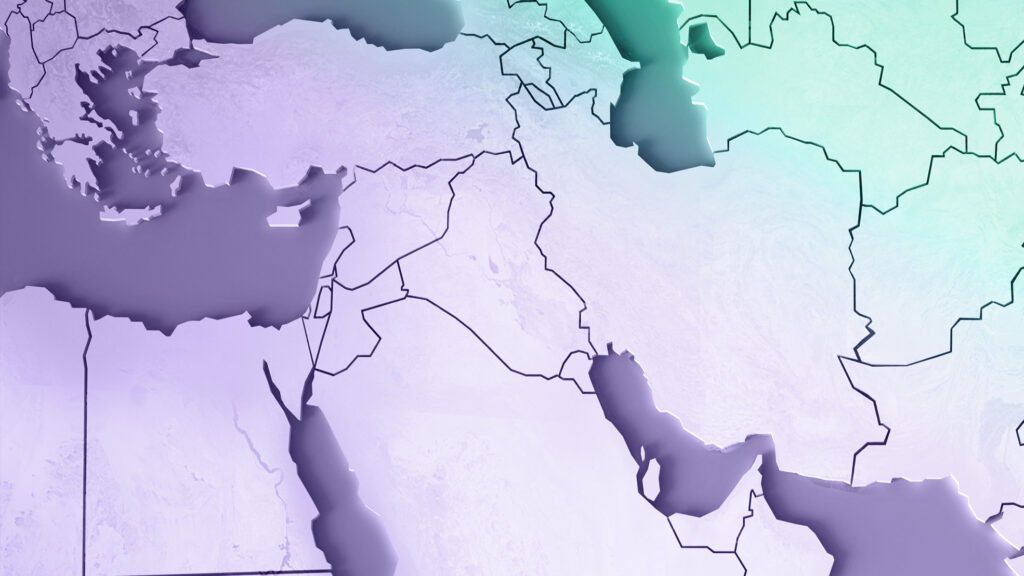As Israel’s strikes on Iran show no sign of letting up, Donald Trump is sending mixed signals—calling the attacks “excellent,” yet urging de-escalation and for Iran to return to nuclear negotiations with the US. Trump still wants a nuclear deal, and Tehran has signaled willingness to talk if the Israeli offensive ends.
Meanwhile, Israeli Prime Minister Netanyahu is reportedly urging Trump to authorize strikes on Iran’s underground nuclear facilities, especially Fordow, buried deep underground near Qom. Israel likely lacks the firepower to destroy the site on its own. That’s forcing a live and consequential debate within the divided factions of the current GOP about whether the US should supply the essential “bunker busting” munitions. This debate is just the latest between the nationalist isolationists who warn against another Middle East war and the traditional Republican hawks pushing Trump to “finish the job” and finally defeat Iran militarily.
Capstone is watching three key questions that will shape global geopolitical and geoeconomic risk going forward:
Will Trump Bomb Iran?
Fordow is the heart of Iran’s enrichment program, and destroying it likely requires U.S. firepower. MAGA-aligned figures like Tucker Carlson are already attacking the idea, warning of “warmongers” dragging the U.S. into another Iraq-style quagmire. Director of National Intelligence Tulsi Gabbard’s recent cryptic video warning of elite-driven escalation now reads like a preemptive strike in this internal GOP war.
On the other side, traditional foreign policy hawks are urging Trump to act and are highly supportive of Israel’s actions. While Trump has not formally taken sides, his tacit support for Israel’s offensive so far has aligned him more with the hawks. They argue that bombing Iran’s nuclear infrastructure would not only degrade its program but also create leverage for a stronger deal. If Israel’s operation continues to succeed militarily and politically, Trump may feel empowered to escalate.
Is a Nuclear Deal Still on the Table?
If Israel halts its strikes and Iran returns to talks, Trump will again face internal GOP resistance—especially from hawks who demand total dismantlement of Iran’s program.
This is part of a broader, ongoing struggle between MAGA isolationists and traditional interventionists. Since Trump’s second term began, the MAGA wing has dominated. This is evidenced by the purges of traditionalists from the National Security Council, broadsides against NATO, and entertaining a new Iran deal that would have been unthinkable under the Obama administration. President Trump and Vice President J.D. Vance’s public snub of Ukraine’s president earlier this year signaled just how far the party has shifted.
Yet hawks never gave up the Iran fight. While the MAGA contingent, led by voices like Steve Bannon and Tucker Carlson, prevailed in short-term battles, they never succeeded in getting Trump to join them in forsaking force against Iran. Meanwhile, in May, most GOP lawmakers urged Trump to reject any deal that fell short of a full rollback of Iran’s nuclear program, citing Trump’s own 2018 rationale for quitting the Joint Comprehensive Plan of Action (JCPOA). This likely forced US Special Envoy to the Middle East Steve Witkoff to echo their “no enrichment” demands in subsequent public interviews.
Following Israel’s historic attacks, Iran is militarily weakened, and its nuclear sites are degraded. Diplomacy may offer the only path to permanent denuclearization. And therein lies the rub: even those voices supportive of Israel’s actions admit military action strikes are a short-term fix. Ceteris paribus, Iran will likely try to rebuild its nuclear program quickly, which will in turn put pressure on President Trump to reach a lasting nuclear deal or return to conflict.
Iran has its own political constraints. After the humiliation of recent strikes, and following the significant degradation of its regional proxies—a longstanding source of influence and deterrence—its leadership may face even greater pressure to insist on preserving domestic nuclear enrichment. One possible off-ramp: the “consortium model,” where foreign powers manage a civilian nuclear program on Iranian soil—first floated by Witkoff and reportedly designed by Biden officials. For GOP presidential contenders like Vance, that’s not a perfect solution, but it could be better than prolonged war. For hawks like Senator Ted Cruz, opposing such a deal could offer a clear 2028 campaign platform. Either way, the debate is inseparable from domestic politics on both sides.
While not central to the current debate, Israel’s strikes have also exposed a significant divide among Democrats. Senior figures, including Senators Reed, Shaheen, and Murray, quickly condemned the strikes as escalatory, and outside voices, such as former Obama advisor Ben Rhodes, argued that they undermined diplomacy and risked sparking a regional war. Others, including Senator Schumer, struck a more pro-Israel tone.
Democrats find themselves torn between Trump’s dismantling of the Obama-era Iran deal and Israel’s potential elimination of Iran’s nuclear program. Many are wary of rehashing the 2015 debate or appearing reflexively anti-intervention, but they’re equally cautious about endorsing renewed US military action in the Middle East. The result is a party struggling to define a coherent position in real time.
When Will China Step In?
China and Iran maintain a transactional relationship: Beijing buys discounted Iranian oil and supports Tehran’s disruptive activities to counterbalance U.S. power in the Middle East. China is also looking for ways to challenge US military and economic efforts to loosen China’s economic stronghold in the Gulf, epitomized by last month’s successful deals announced with Saudi Arabia and the UAE on the export of data center technology. But China also values stability, evidenced by the fact that it helped broker the 2015 nuclear deal to prevent a nuclear-armed Iran precisely because it viewed such an outcome as antithetical to its interests.
So far, Beijing has stayed on the sidelines. But if the conflict drags on, China could deepen its support for Iran to tie down the U.S., or step in as mediator. Trump may resist giving Xi a diplomatic win, but his unpredictability leaves the door open.
Bottom Line:
Trump’s next moves—on military escalation, diplomacy, or deference to Israel—will not just shape the Iran conflict. They’ll also serve as a defining moment in the GOP’s foreign policy identity. The battle to influence him is already underway.

Daniel Silverberg, Co-Head of Capstone’s National Security Team

Elena McGovern, Co-Head of Capstone’s National Security Team
Read more from Capstone’s National Security team:
A Fractured Front: Why the US-Iran Negotiations Will Stall
Trump’s Coming Global Infrastructure Play
Three Factors That Will Drive Trump’s China Policy



























